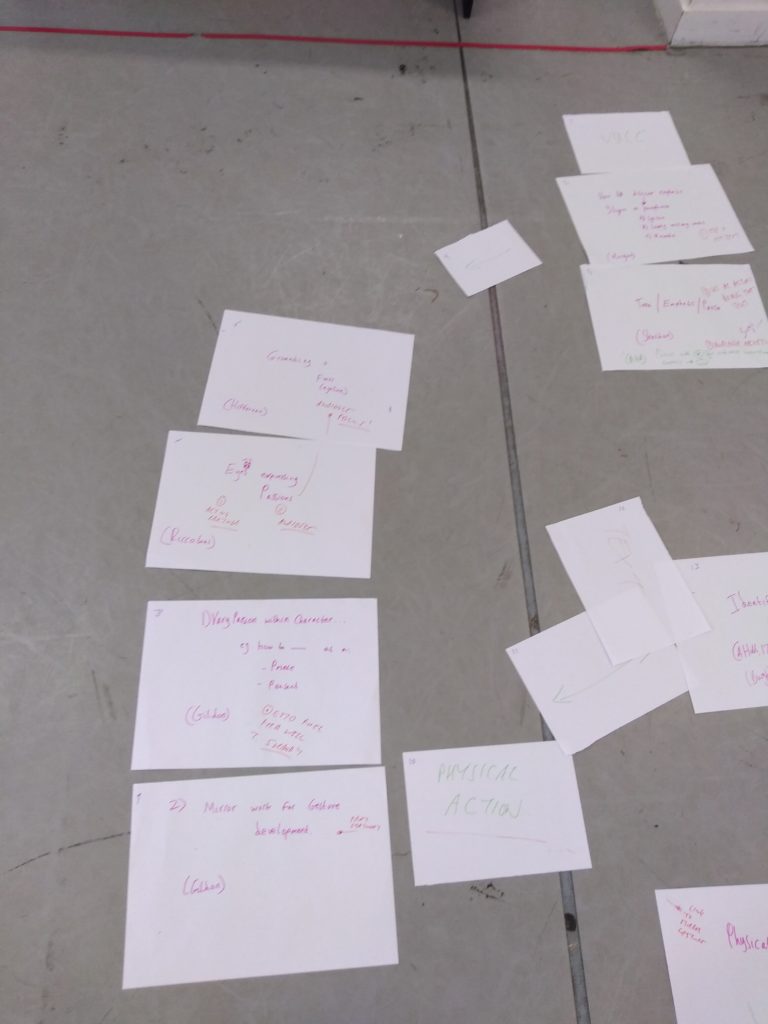This week and back in April I ran two, two-day workshops at the Orange Tree Theatre in Richmond-upon-Thames. I’m grateful to the theatre for making a rehearsal room available to me, to the two actors – Debra Baker and Alex Warner – I worked with in my first workshop, and to the two directors – Jamie Harper and Chloe France – who humoured and helped me a few days ago. Each workshop had a simple question at its heart: how can the theatre of the eighteenth century help us make better theatre today? Although few outside academia now know it, the 1700s were a golden age of the stage, and my hope that material from this period could spark new innovations among practitioners today, few of whom maintain a strong connection to the history of their professions.
There’s more justification than that, of course, but two things make it difficult to explain everything in a blog post. First, some of this information is sensitive, as I and collaborators will be using it to apply for grants. Second, arguments of this nature veer – in my experience – between excessively detailed precision and excessively broad generalization, and a log post format only augments such an issue. Indeed, the last sentence of my first paragraph is one such broad generalization that I’m not particularly happy about.
Given what I cannot say easily, this post will instead focus on what I have found most rewarding about these sessions. Two days for a workshop might not seem very long, but I don’t think I or the other participants could have lasted much longer: each session was intense: I had to respond to a host of questions and take a lot of notes to record our debates, my actors had to learn and critique a great deal of diverse techniques, and my directors were called upon to not only devise new exercises and answer many questions from me, but also to help synthesize all the information I’ve got so far.
A photo of a part of that synthesis follows:

This is one section of a huge arrangement of papers that covered a quarter of the rehearsal room by the end of the last day of the workshop. In their arrangement and the variosu notes scribbled upon them, they provided the outlines of a method for incorporating eighteenth-century arts of acting into contemporary rehearsal practice, both as individual lessons and as a coherent process for working with text. As I type this, several days later, I still can’t believe that we reached such a synthesis.
Of course, there are limits to what we produced and a bit more research to do, but there, on the floor where a youth group is probably now rehearsing their production of The Tempest was a plan, potentially a book, and certainly a direction for further work. Until I saw it, I don’t think I realized how much I needed this thing, nor how great a toll the seemingly directionless wandering of the previous weeks had taken. Hopefully I now have a clearer idea of what I’m doing, and my next task is to persuade colleagues and publishers to help me push such work further.
One response to “Two Workshops”
[…] the topic of things going on, I sent off a book proposal based on the workshops I talked about in my last post. I also began the work of turning the materials that made a chapter in my thesis into a much neater […]